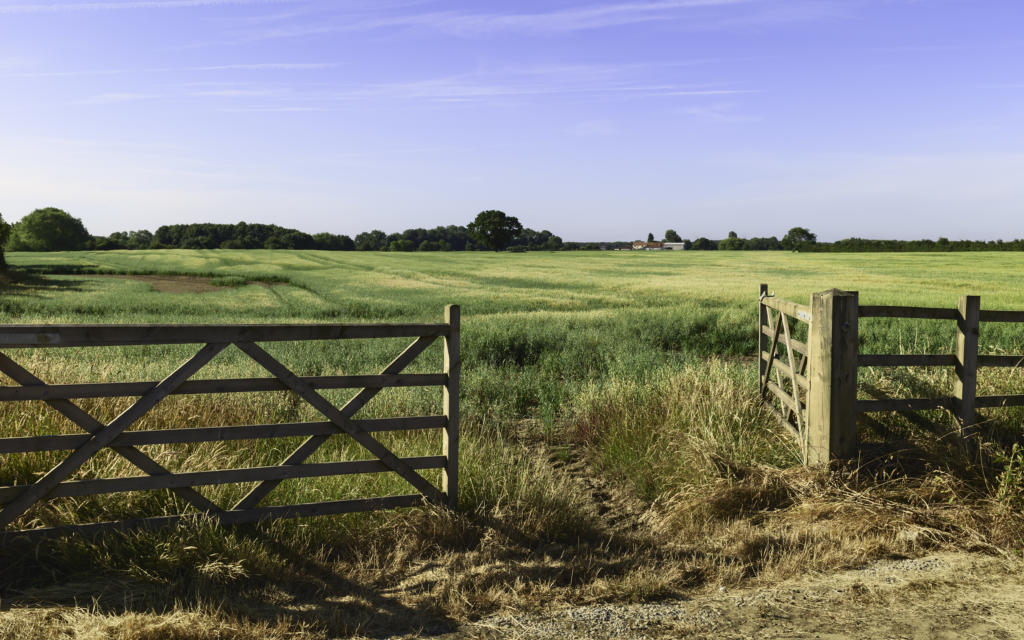
In the latest of a series of family feuds reaching the High Court, in the case of Guest v Guest, father and son locked horns over the future of their family farm with the judge ultimately making a substantial order in the son’s favour.
Andrew, son to David and Josephine, had dedicated his life to working on his family farm, Tump Farm, owned by his parents. It was not however a blissful rural existence; differing approaches to risk management, farming and business in general led to familial ties fragmenting between Andrew on the one hand, and David and Andrew’s younger brother, Ross, on the other.
Possibly constituting an attempt to reconcile differences, in 2012 Tump Farm took on the running of its neighbouring farm and established two distinct partnerships; Andrew and Ross were both designated principal farmer of Tump Farm and the neighbouring farm respectively, as well as appointed joint partners of their respective farms alongside David and Josephine. In spite of this, familial relations continued to deteriorate eventually resulting in David dissolving the Tump Farm partnership. Andrew was of course distraught and David’s offer that Andrew lease the farm back only exacerbated Andrew’s frustration and sense of injustice.
Andrew therefore issued a claim against his parents on the basis of what is termed “proprietary estoppel”, which in straightforward terms means a party who has made a promise will be held to it if it would be unjust not to. Proprietary Estoppel is made up of the following 3 elements;
- An assurance made by the owner of the property/interest;
- Reliance placed by the claimant on that assurance;
- Detriment suffered by the claimant as a result of their reasonable reliance upon the assurance.
Issue 1: Were assurances made?
This particular case of proprietary estoppel pivoted upon whether or not assurances of sufficient clarity were made and the following issues arose:
The issue of clarity
Andrew’s uncertainty over what exactly he would inherit was considered potential evidence that there were no assurances of adequate clarity given. Nonetheless, at trial it was held that a long-standing promise made consistently over time is sufficient to establish a clear and definite assurance. Equitable doctrines permit greater flexibility than contract law and provided the property subject to the assurance can be identified, some uncertainty as to scope is permitted. Just because the extent of the farm Andrew would receive was reduced after Ross was brought in, did not prevent him from pursuing a claim.
Assurances evidenced by conduct
Although Andrew referred to a number of occasions where he was told by David that it would “all be his” one day, taken to mean the farm business, assurances were predominantly evidenced by David’s and Josephine’s conduct. This included;
- As part of the creation of the two distinct farming partnerships, it was agreed that Andrew would make “balancing payments” to Ross reflecting the difference in relative value of the two farms.
- Subsequent to David changing his Will, Josephine wrote to her son in which she said that he had it “all in [his] lap and [seeming] to want to throw it all away” supporting Andrew’s claim that he has indeed been continually assured that he would inherit.
- After the representation had been made to him, nothing was done or said to indicate to Andrew that his assumption he would receive the farm was anything but correct. Andrew did not expect to acquire an interest but rather, considered himself to already have an interest in the farm and in these circumstances, David’s silence counted against him.
Issue 2: Was that assurance reasonably relied upon?
The judge found that Andrew devoted the only capital available to him, being “human capital”, to the farm. The judge was satisfied that the claimant would not have worked on the farm for such little financial remuneration if he was not relying upon the assurance of his inheritance. The judge considered it significant that Andrew offered more than just labour, investing time in training, developing the business and generally demonstrating an entrepreneurial spirit. Andrew was key in the day to day running of the farm and committed his working life to the business to his detriment, as he had the potential to have earnt more elsewhere.
Issue 3: what was the extent of the detriment suffered as a result of that reasonable reliance?
David and Josephine pointed to Andrew both receiving wages and having the rent free occupation of a Cottage. Nonetheless, Judge Russen held that the mere fact that Andrew dedicated his life and energy to the farm and in doing so, sacrificed the “likely prospect of bettering himself elsewhere”, was sufficient to indicate financial detriment has been suffered.
Outcome
Andrew was awarded a lump sum payment effectively representing 50% of the value of the dairy farming business after tax , and 40% of the value of the freehold land and buildings at Tump farm after tax.
Implications of the Judgment
The principal point of interest in this judgment was that Andrew’s shifting expectation (i.e. what he was receiving was being scaled down when Ross was brought in in 2012) was not fatal to the claim. David and Josephine were unable to successfully suggest that this created uncertainty which undermined Andrew’s claim.
